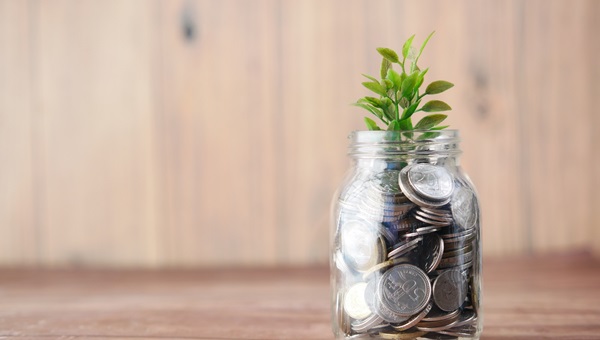Goods and Services Tax
The Margin Scheme provides relief to property transactions by allowing a reduced amount of the Goods and Services Tax (GST) to be paid. It applies to the supply of freehold interests in land, strata units and long-term leases.
The GST is normally applied to the full sale price of taxable goods and services, however a property developer who is registered for GST may choose to only apply the GST to the margin.
The margin is the difference between the sale price (including GST) less the original purchase price of the development site or, in the transition, the difference between the sale price and the valuation of the property (including works in progress) as at 1 July 2000.
The Margin Scheme ensures the GST is payable only on the value added by the developer. It also reduces the GST component applicable to the sale of new residential property sold by developers after 1 July 2000 who are registered for GST.
Further information on the Goods and Services Tax can be obtained by contacting the Australian Tax Office on 13 24 78 or by visiting ato.gov.au.
It is important that the auctioneer advises the buyers whether the vendor is registered or not and whether or not the auction is being conducted in a GST-inclusive or GST-exclusive basis, and whether the Margin Scheme has been used.
The Goods and Services Tax (GST) is a 10 per cent tax on most goods and services supplied in Australia since 1 July 2000.
The consumer bears the cost of the GST through the pricing structure of the goods and services they purchase. However it is the seller of the goods and services that is responsible for remitting the GST collected from sales, to the Australian Tax Office.
GST will apply to many (not all) types of property transactions. However, the treatment of property for GST purposes depends on whether it is private residential, commercial residential, commercial property or a farm.
Yes. Eligible first home buyers will receive assistance of $10,000.
You will be eligible to apply if you;
- are buying or building your first home, and
- are an Australian citizen or permanent resident,
- intend to make the home your principal residence, and
- start living in the home within a reasonable time.
The payment will be the same regardless of your income or of the area in which you are buying.
It does not matter if you are buying a new or established home. The benefit will only be paid for the purchase of your principal place of residence - not for a holiday house or investment property.
The payment will be available if you enter into a binding contract to buy an existing home or build a new home. It will also be available to owner builders.
Does GST apply to the sale price of a residential investment property?
Generally Goods and Services Tax (GST) will not apply to the sale of existing residential property irrespective of whether it is a family home or an investment property. However GST will apply to the sale price of newly constructed homes, including investment properties, sold by a developer who is registered for GST or needs to be registered for GST.
See Margin Scheme for details on GST relief for developers.
Does GST apply to the rental income from a residential property?
No. GST does not apply to residential rents.
Does GST apply to the outgoings associated with the Lease?
GST will apply to most of the outgoings. Some of the exceptions include rates and taxes, and financial services such as bank fees and interest charges.
Does the GST component of (income) tax deductible expenses associated with owning an investment property also be allowed as a deduction?
Owners should seek qualified advice. Generally however, the entire cost (including GST) will be allowed as a deduction for income tax purposes where you are not entitled to claim input tax credits.
Do owners of residential rental properties require an ABN?
The Australian Tax Office has announced that owners of residential rental properties do not need an Australian Business Number (ABN), even if there is some minor business use of the property by the tenant.
There is no requirement for residential rental property owners to quote an ABN to any organisation that is providing residential accommodation for its own employees, such as the Defence Housing Authority.
If a residential property owner wants an ABN they are entitled to one as an enterprise, but they do not require one for PAYG purposes.
Should all commercial property owners register for GST?
Goods and Services Tax (GST) will apply to the sale of all commercial property by a registered entity, such as commercial property owners with annual turnover (including rental income) greater than $75,000.
Commercial property owners who generate turnover (including rental income) less than $75,000 may choose to register for GST. A property owner must group all of his or her enterprise together to determine whether to register for GST.
If an unregistered commercial property owner also does not have an Australian Business Number (ABN) to include on rental invoices issued to a tenant, then there is a risk the tenant will be required to submit part of the rental payments directly to the Australian Taxation Office (ATO).
In this situation the unregistered commercial property owner may consider the merits of just applying for an ABN. For further information on the implications of GST and PAYG, owners should contact their financial advisers.
Will GST apply to strata levies?
A body corporate with an annual turnover of $75,000 or more must register for GST. A body corporate with an annual turnover of less than $75,000 may choose to register.
A registered body corporate will be required to include GST in the amounts levied on proprietors. The body corporate will be entitled to input tax credits for the GST included in costs such as electricity, management, cleaning, repair and maintenance services. It will also be required to lodge a Business Activity Statement for each tax period.
Will GST apply to the sale price of commercial property?
GST will apply to the sale of all commercial property by a registered entity, such as commercial property owners with annual turnover (including rental income) greater than $75,000. Entities that generate turnover (including rental income) less than $75,000 may choose to register for GST.
Will GST apply to commercial property rentals?
GST will apply to leases of commercial property entered into from 1 July 2000, where the registered owner is, or is required to be, registered for GST.
Will GST apply to the sale price of farm land?
The supply of farmland will be GST free if the supplier has carried on a farming business on the land for at least five years before the sale. In addition, the purchaser of the farmland must intend to operate a farming business on the land.
If the farmland is used for a different purpose, an increasing adjustment will be required to be made.
A large farm may be subdivided into a number of smaller farms and sold off. These supplies would be GST free provided each of the farms can operate separately.
Will GST apply to the sale of a going concern?
The supply of a going concern (including a business) is GST-free in the following circumstances:
- The purchaser must be registered or required to be registered for GST.
- The supplier must carry on the business until it is sold.
- All of the things required for the continued operation of the business must be supplied.
- Both parties must agree in writing that the supply is a going concern.
Can the buyer of a commercial property claim a credit for the GST included in the sale price?
If the buyer is registered for GST, then the buyer may be able to obtain an 'input tax credit'. The claim will depend on whether the seller has applied the margin scheme to calculating the GST liability.
If the seller has applied the Margin Scheme, the buyer will not be able to claim GST.
Prior to making an offer to buy commercial property the buyers of commercial property should determine how the GST has been calculated.



